OTD Alumni Talk About Finding Their First OT Jobs
January 8, 2021
As many of our Master’s students have already applied to the OTD Program and some continue to consider their options for next year, five recent alumni from our OTD Program — Ana Sanchez, Elissa Taylor, Nicole Wright, Ozan Yay, and Patrice Zhao — discuss their experiences searching and applying for jobs under unprecedented circumstances with our OTD Student Ambassador Daniel Padilla Vega.
Academics and Courses Alumni Clinical Pandemic Students
Where did you complete your OTD Residency?
Ana: I completed my residency at Mt. San Antonio College (Mt. SAC), which is a community college.
Elissa: LAC+USC Medical Center’s Adult West Primary Care clinic (supported by the USC LRCC research lab).
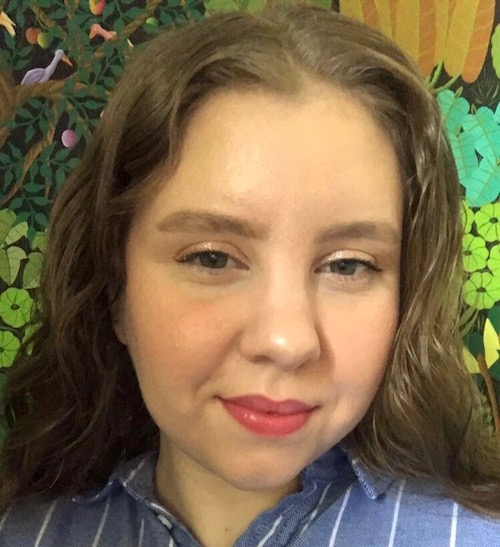
Nicole Wright OTD, OTR/L, CIMI
Nicole: I completed my residency at Through the Looking Glass. It is a non-profit organization that has a mix of mental health providers and developmental specialists. I work specifically doing early intervention services as an infant developmental specialist, consulting at head start and early head start schools, co-facilitating parent groups regarding school readiness and mental health, and providing adaptive baby care intervention for caregivers with disabilities.
Ozan: Skid Row Housing Trust.
Patrice: Utah State Hospital, an inpatient psychiatric hospital.
How did the OTD program impact your decision to pursue a particular job and/or practice setting?
Ana: The OTD gave me the opportunity and courage to try something I would otherwise have never tried: to start a new program. During my residency, I fell in love with this emerging area of practice, and I plan to continue working with students at the college level.
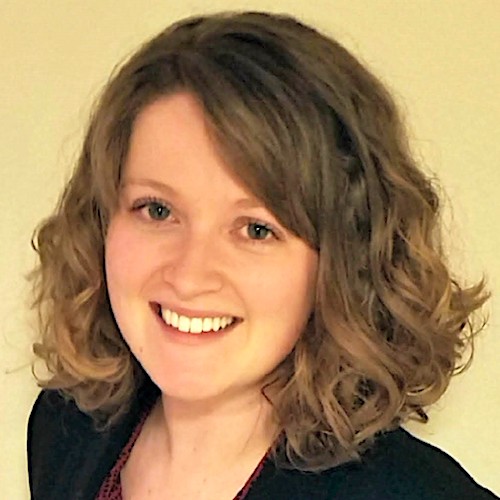
Elissa Taylor OTD, OTR/L
Elissa: My residency really reinforced my passion for working in the primary care setting. Through the residency and mentorship from USC faculty, I discovered how much I still have to learn to be successful in the “master generalist” role of OT in primary care. I decided that my future career would be best served by seeking a variety of experiences that would help me to grow and refine my skills in areas that I feel I have the most room to develop.
Nicole: The OTD program did not necessarily change my decision about what job or setting I wanted to work in, but it did change my idea about the roles I was interested in working in at my job site. The OTD program allowed me to focus on other aspects outside of clinical work. For example, during my residency, I created a manual for an intervention that was being used at my work site. I have taken on more leadership and managerial responsibilities as a result of the OTD program.
Ozan: The OTD program taught more about the macro-level work of occupational therapy, whether that meant understanding how to manage a group of people to complete a project or analyzing the framework of a company to yield more efficient methods. I felt like I gained skills that will not only make me a better occupational therapist but also someone who can motivate a team like a manager or supervisor.
Patrice: I’ve always wanted to practice in mental health, so the OTD program just kind of helped me build the skills and network that I needed to practice in mental health in a state that I had never lived in before. In fact, I was recommended to my current employer for a full-time position by my preceptor at the Utah State Hospital.
What skills did you gain during the OTD program that have translated well into your current job?
Ana: Throughout my OTD and residency, I gained the skills necessary to successfully advocate for OT services, improved my communication and public speaking skills, and learned to become more flexible in my thinking, all of which have been critical as I continue to expand OT’s presence at Mt. SAC, where I continue to work.
Elissa: Flexibility, time management, organization, and communication skills! Since I am working in a variety of settings and self-managing multiple part-time/PRN/contracted positions, I need to stay on top of my schedule and my to-do list. The fast pace and demands of the OTD program set me up well for succeeding in my current roles.
Nicole: The OTD program allowed me to understand administrative aspects of OT that are vital to the success of a business. Because of these insights, I better understand the logistics of working within funding systems or applying for grants. The program also emphasizes the importance of being able to research the needs and best practices of working in any setting. I have developed my research skills throughout the program, which is essential in any job as it is crucial to work within an evidence-based practice framework.
Ozan: I believe the main skills I’ve gained that translate well into my new position as a Project Manager-OT is being able to communicate with a wide array of people, organizing my ideas and plans, and present them in an easy-to-understand manner to other professionals. These skills are important to me because it provides me the tools to initiate an OT program in companies that don’t already offer occupational therapy.
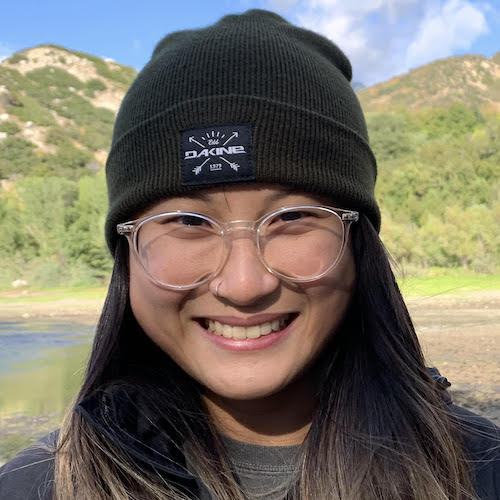
Patrice Zhao OTD, OTR/L
Patrice: Because my residency was in a relatively more obscure field (inpatient mental health), I had the opportunity to really think on my own. My faculty mentor, Dr. Pitts, taught me how to do research, connect with other practitioners (especially those with knowledge in my interest areas), think critically, and stay true to OT values. All these skills are extremely useful at my current role in OT — public/community mental health, specifically for individuals experiencing early psychosis.
Walk me through your process of researching and applying for jobs and how you ultimately chose your current position.
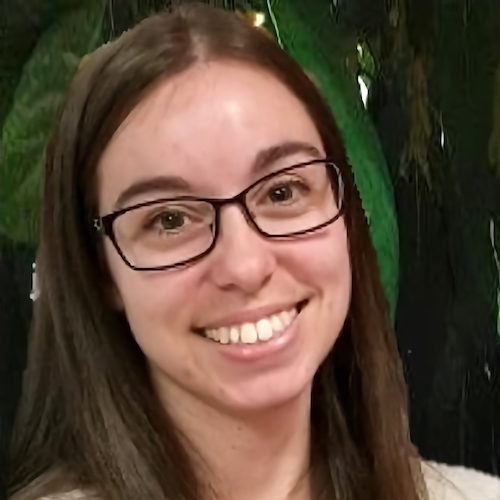
Ana Sanchez OTD, OTR/L
Ana: I was very fortunate in that I was able to secure employment at Mt. SAC after my residency. And in an effort to better tackle my student debt, I continue to search for additional employment. I will say that my job search has been limited due to restrictions that I have placed in order to keep family members safe from COVID-19. As I have searched for jobs, I have found that the education I received at USC during the Master’s and then OTD program, have prepared me for many of the jobs I have found through job searches, but COVID-19 has forced me to limit certain potential opportunities at this time. I think this is important for future graduates to take their personal circumstances into consideration when searching for jobs post-graduation.
Elissa: I started looking for opportunities pretty early (started in March, graduated in August) by reaching out to my network that I built throughout the Master’s and OTD program. My mentors and OT contacts were very helpful in connecting me to other working professionals and helping to review my resume and cover letter. I chose the settings that I was interested in working in as a recent grad and the geographic area that would work for me. I set up times to talk with mentors and senior OTs to learn about the specific locations that I was applying to (getting to know a current employee well enough that you can use them as a reference on your application really helps to get your foot in the door!) and used their input and suggestions to help tailor my cover letter. I ultimately chose my current mix of positions based on what would fit my schedule best (I needed to be able to have flexible schedules that meshed well since I am not working one full time position) and what would give me the practice experience that I was looking for. One of the most important things I learned throughout this process is to start brainstorming early about what you are looking for in a job and the workplace itself. I was fortunate enough to have an incredible residency and I was able to base my list of most important factors on my previous experience. This also gives you a great place to start when thinking of questions you can ask during your interviews!
Nicole: My job application process was unique in that I didn’t apply for a job. I was lucky enough to be hired by my OTD residency site. My partnership with my residency site worked really well, and as they had poured in countless hours training me and working with me to understand their unique work culture and values, it was a good fit to get to continue working at the site for myself and my employer. I am very happy to continue working at my site and continue working with my clients and on the projects that I had started during my residency.
Ozan: One of the main reasons I pursued the OTD was because I knew I would have a mentor for my first year of practice. This was crucial for me because after completing the OTD, I first spoke with my mentor about potential practice sites in community mental health, especially ones working with the homeless population. With her guidance, I felt confident in applying to job sites that may not even have full-time OTs on staff. I had sent out a couple of applications before I received a call from the COO of Skid Row Housing Trust asking if I could come in to talk about a new program they were trying to launch. They needed an OT for the job and he knew about my two-year presence with the company since I began as a level I fieldwork student and continued through the completion of my OTD residency. After hearing more about what the position was going to require, I knew I wanted to accept it because not only will I get to continue improving my OT knowledge in community mental health, but also gain new skills in leadership and management.
Patrice: For my residency, I returned to the same site (Utah State Hospital) where I did my last level II fieldwork, so my preceptor (former CI) already knew me well. We both knew that the hospital most likely wouldn’t have an opening for me to stay. But, my preceptor knew that I was still hoping to stay in Utah and continue practicing in MH afterwards. Right around that time, a community mental health center’s Prevention and Recovery of Early Psychosis (PREP) team reached out to my CI (the supervisor for the only group of MH OTs in Utah). They asked him about what OT does in MH and how they could find one. My CI told me about the opportunity and connected me with the PREP program manager to arrange an interview. The first time I interviewed was at the beginning of my residency. I didn’t get the job then, because I was still months away from graduation. After that, I thought I missed my shot at PREP, but I was still hoping to get a job at the hospital. And then COVID happened. Everything changed and now the hospital for sure would not be able to offer me a position. But then in August, when I was getting ready to be done at the hospital and panic-applying to jobs, the PREP program manager reached out to me directly, saying that that same OT position was open again and they would like me to apply. Of course, I immediately applied, because that was my dream job! I went to the interview in September and received the offer one week after that.
If applicable, what impact did COVID-19 have on this process?
Ana: COVID-19 has significantly affected my job search. I have limited the types of jobs I have applied to based on how secure I feel regarding my ability to keep high-risk family members safe from COVID-19.
Elissa: Ah COVID . . . unfortunately the availability of full-time OT positions in the LA area decreased significantly at the onset of COVID, however part-time and PRN positions are still available (although not as plentiful as it had previously been). I would have preferred to find a full-time position and supplement my experience with a PRN or contracted position, but due to COVID I turned to plan B: selecting which settings I wanted to gain experience in and finding multiple part-time positions that would help to fulfill that wish list. If the impact from COVID is still this significant when it comes time for you to start searching for a job, I would advise starting early, being as patient and flexible as possible, and looking outside of the LA/SoCal area if possible.
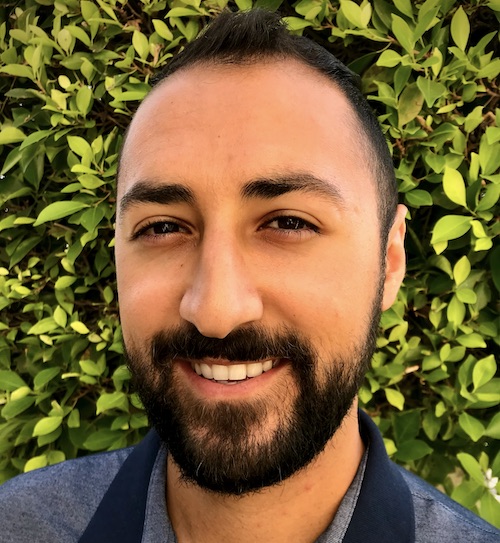
Ozan Yay OTD, OTR/L
Ozan: I think COVID-19 allowed me to take more time in searching and applying for positions within the practice setting that was right for me. I felt less pressure to immediately begin a new job with a new company because I know each company is adapting the way they provide services during this time. So, I wanted to take my time to reflect on what stood out most in my memory during my time as an OT student because I knew, that’s the direction I want to channel my energy. I believe giving myself that time made it easier to understand how far I had come, what I wanted to gain next from my career in OT, and how I want to go about it.
Patrice: Well . . . If COVID-19 didn’t happen, I might have been able to get a job at my residency site (Utah State Hospital)? I’m not sure, but I know that COVID-19 pushed me to have to find a position outside of the hospital. If it weren’t for that, I might just miss my opportunity to get my dream job, because I would’ve probably been too complacent to leave my residency site. It does make it very challenging, however, to try to push the system to change. My current supervisor has been pushing for more inclusion and recognition of OT. For example, we want to have OT-related items in the electronic charting system. As of right now, I’m in the system as “qualified MH provider,” because there is no “occupational therapist” category. We want to convince the state to pay for mental health OT services through Medicaid, so that my position can be self-sustaining to be full-time. However, this process has been slow, because the agency and state are busy dealing with the consequences of COVID-19.
⋯
Next by tag Academics and Courses ⟩ Alumni ⟩ Clinical ⟩ Pandemic ⟩ Students ⟩





